I Lived As Someone Else For Nearly 2 Decades. Here's What Made Me Reclaim My True Identity.
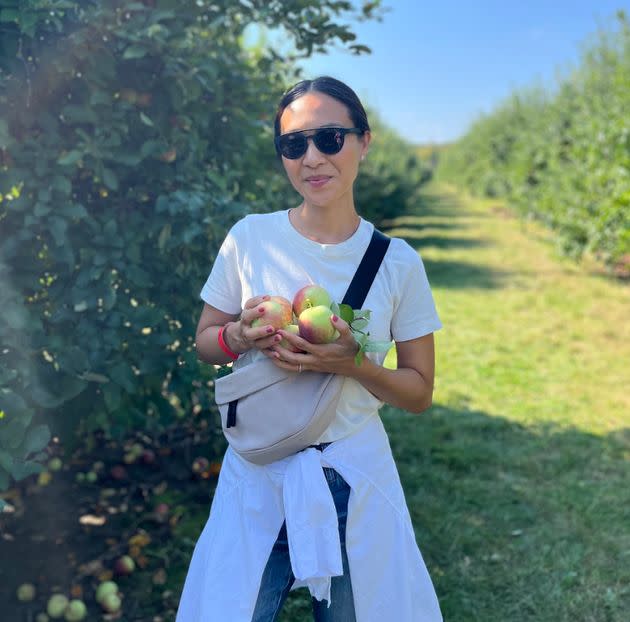
Kelly, Melissa, Rachel, Jennifer — oh, I longed to have one of these names as my own. I would’ve even settled for Grace or Esther, which were common Korean American names in the ’90s.
By the time I was in fifth grade, I was used to teachers calling me Kim, even though Kimberly wasn’t my name and Kim was my last name. Many stopped asking how to pronounce my real name, Kyunghee, and shamelessly asked if I had a nickname they could use or just assigned me one without asking if it was OK.
I wish I could go back and give the young Kyunghee a big, warm hug for how much she endured. I now understand why I stayed quiet and let people treat me the way they did. Most kids, whether they’re from Korea or America or anywhere else, just want to be accepted — even if that means not speaking up about something as important as their name.
While my teachers and classmates were calling me whatever was easiest for them, I was busy practicing and trying to remember their names. The only times I heard my real name being used were at home and at church. What was once a name I loved because it was given to me by my grandfather soon became a symbol of shame and otherness.
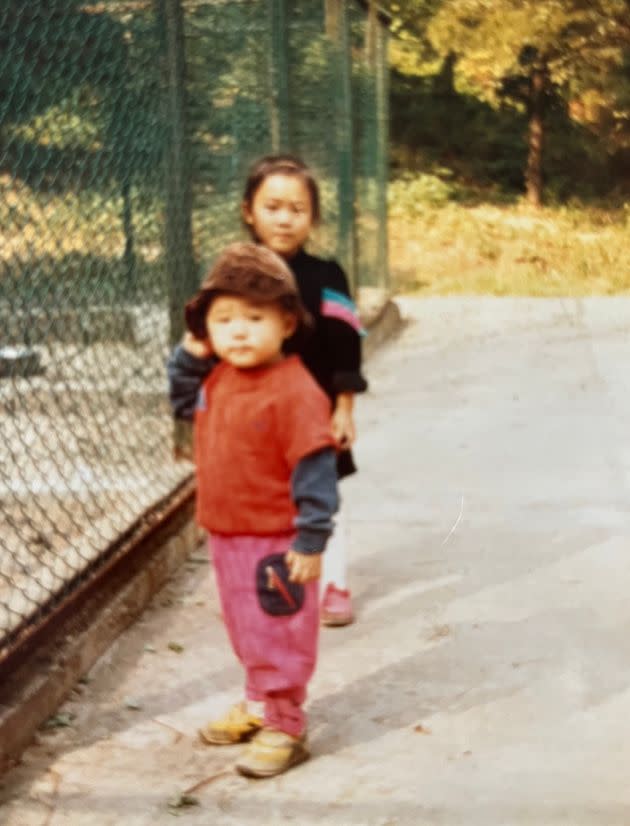
When I got to high school, some friends called me Kyung, which seemed to be a step in the right direction, so I accepted it. Still, I felt trapped between two worlds and two people — Kim or Kyung at school, and Kyunghee at home and at church. I found every bit of myself in a constant tug of war, and on any given day I wondered which part would win — the Korean in me, or the American in me? Because I was constantly grappling with the question of “who should I be?” there was never a chance to consider “who do I want to be?”
I went to Michigan State University for college and, for the first time in my life, I was surrounded by so many Asians, many of them Korean and Korean American, who could pronounce my name perfectly. However, I quickly realized that finding a group of people who would accept me as Kyunghee didn’t make the struggles of being Korean in America disappear. Suddenly I felt too American around my Asian peers and not American enough around my American friends.
This kind of constant redefining of an identity isn’t visible, but it’s something that many Asian Americans experience.
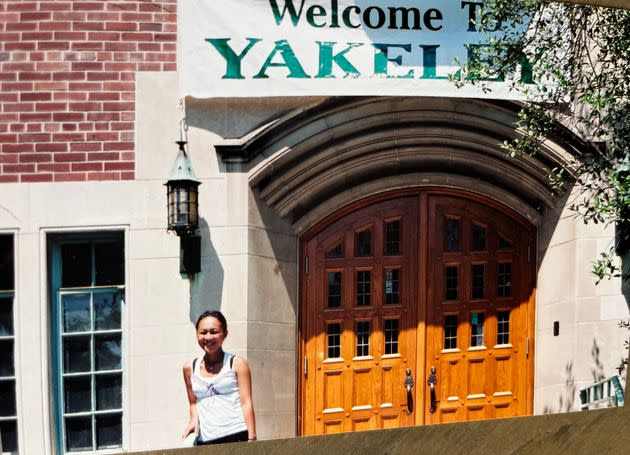
After I graduated college and began my teaching career, I decided to finally give myself an American name when some colleagues asked if I went by a different name. I was already experiencing being othered. I noticed my colleagues called each other by their first names, but some of them called me Ms. Kim. They may have believed that they were being polite, but they were referring to me in the same way that my students did, and I knew it was because they didn’t want to deal with my name. It was hurtful.
So I changed my name to Faith, and for 16 of the 19 years that I was a teacher, I went by that name (though I did not legally change it). I told all of my friends — even my Asian friends — and everyone I knew personally and professionally to call me that instead of Kyunghee. I could now introduce myself to people with confidence. My parents knew I was going by a different name outside of our home and, because it was common for many second-generation kids to have both a Korean name and an American name, they didn’t wonder why.
Holding two identities — playing two roles — is normal for many Asian Americans.
A good friend of mine expressed her sadness over me changing my name. To her, she said, I would always be Kyunghee. While I appreciated that, struggling with so many people mispronouncing my name, or assigning me a nickname I didn’t ask for, had taken a toll.
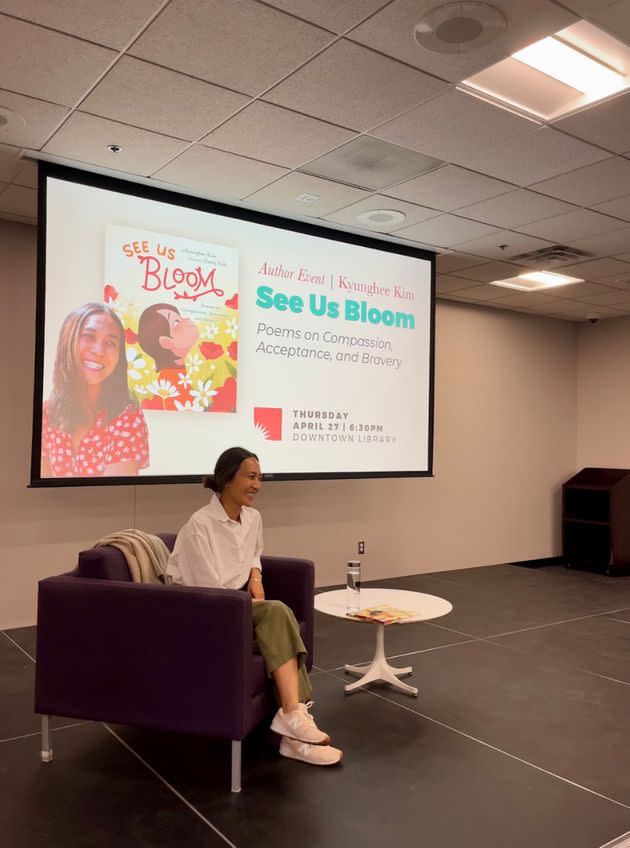
Even though I became used to answering to my new American name and referring to myself by it, I never identified with it. Faith was a name I kept — but at arm’s length. I would catch myself looking at it written on a notebook or my school ID badge and wondering, “Who is that?”
Despite living as Faith for almost two decades, she never felt like home. Being her made it easer to talk to people and make friends, but no matter how many years went by, I wasn’t her. She was a person I created out of shame and obligation — someone I thought was an improved version of Kyunghee. Faith was supposed to be the Kyunghee who is confident, smart, witty, outspoken and more American. But as appealing as she appeared, she just wasn’t me.
When the COVID-19 pandemic happened in 2020, lots of people made big changes to their lives — some because they were forced to make them, and some because they felt like they suddenly had the opportunity to do so. As I watched the hatred toward Asians and Asian Americans increase dramatically — including in violent attacks — I felt compelled to reflect on my own life. I wanted to stand with my brothers and sisters and tell them that they are loved and they belong, but I wondered if I could honestly say that I loved myself or that I loved being Asian American. I realized that maybe I don’t have to be a different version of myself. Maybe, no matter what anyone else wants, I have to do what’s right for me.
I decided to change my name back to Kyunghee.
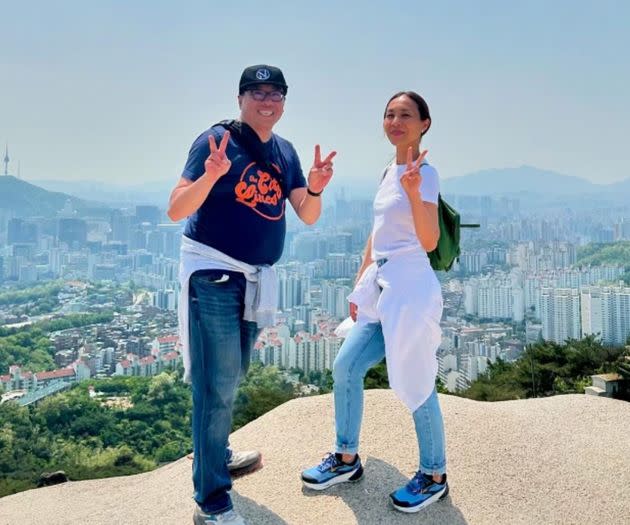
Reclaiming my given name was a fairly no-nonsense event. I told my friends and colleagues that I am Kyunghee Kim and that’s what I wanted to be called from then on. I let them know that if they needed help pronouncing my name, it wouldn’t be a problem, but asking me if I had a nickname or another name I go by would be.
I’m surprised by how easy the transition has been for me. The second that I decided to go by my real name — and committed to being myself — the weight I’d been carrying lifted, and my body and mind felt lighter. It’s been almost four years since I became Kyunghee again.
Now every time someone calls me by my name, I am reminded that I am Korean. I am reminded of my grandfather. And I am also reminded of all those years of being unsure of who I was. I think of Faith from time to time and know she did her best.
I continue to live in the in-between spaces of being Korean and American, but it no longer feels like walking on a tightrope and trying to maintain perfect balance so that everyone around me is pleased. The path that many Asian Americans like myself walk should not be narrow and confining. Instead, I see it as wide road where one day we may be more Asian, another we may feel more in touch with our American identity, and sometimes it’s both or neither. Standing together and standing out by proudly displaying our uniqueness means fully being ourselves — our ever evolving selves.
Kyunghee Kim is a Korean American immigrant, Michigan-based author, freelance writer and speaker whose work focuses on well-being, identity and belonging. Find her at kyungheekim.com.
Do you have a compelling personal story you’d like to see published on HuffPost? Find out what we’re looking for here and send us a pitch at pitch@huffpost.com.

